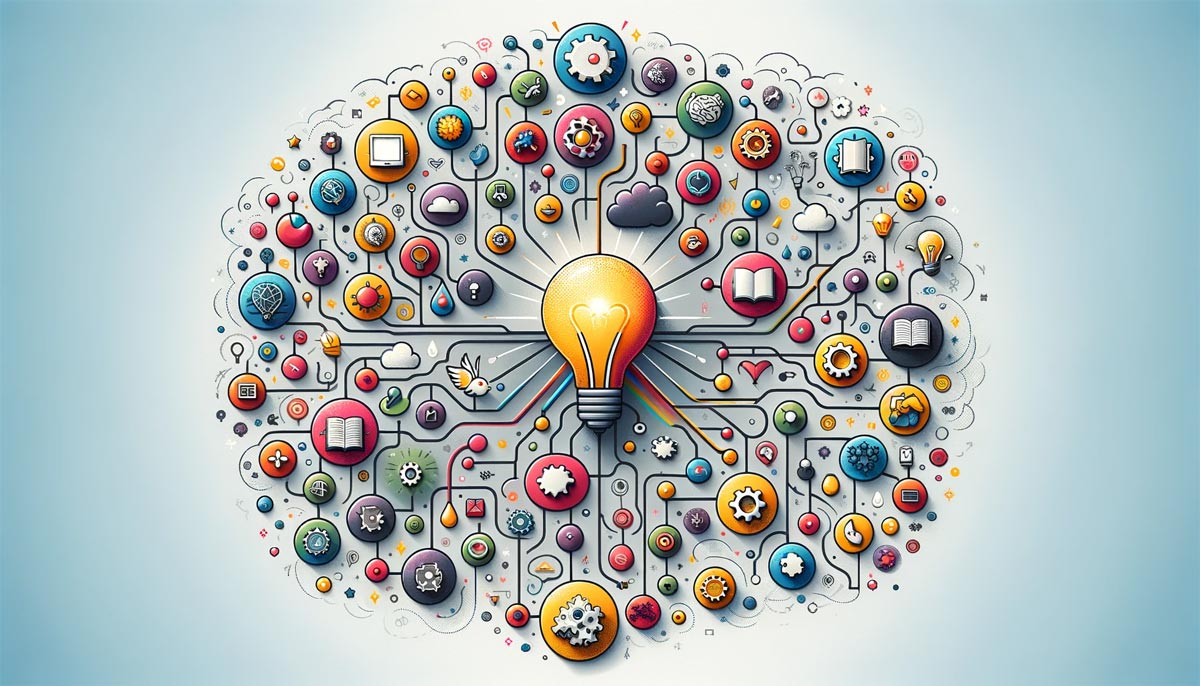
Top 10 Benefits of Mind Mapping - Unlock Your Potential
In today's fast-paced world, efficiency and clarity in thought processes and decision-making are paramount. Mind mapping, a visual thinking tool, has emerged as a game-changer in this context, offering many benefits for individuals across various fields.
This article delves into the essence of mind mapping, exploring its cognitive underpinnings, advantages, practical applications, and how it stands out from traditional note-taking methods.
Aimed at students, educators, professionals, and anyone keen on boosting their cognitive skills and productivity, we present an in-depth analysis backed by research, case studies, and expert insights to guide you on your journey towards leveraging mind mapping to its fullest potential.
What is Mind Mapping?
Mind mapping is a visual organization strategy that allows individuals to represent ideas around a central concept, using branches to connect related thoughts. This method promotes a non-linear approach to thinking, encouraging brainstorming and free association of ideas.
Mind mapping, originally developed in the 1960s by British psychologist Tony Buzan, has since evolved into a popular tool for enhancing cognitive processes, creativity, and information retention.
The Cognitive Theory Behind Mind Mapping
The cognitive theory underlying mind mapping is based on the brain's tendency to work by association. For every piece of information, thousands of links in the brain lead to and from it. Mind maps mimic this associative pattern, allowing for a more holistic approach to learning and memorization.
This visual and organized data presentation method improves retention and recall, more effectively tapping into the brain's cognitive functions than linear methods.
Comparing Mind Mapping with Traditional Note-taking
Traditional note-taking and linear text often follow a sequential format, limiting the ability to see connections between different points. Mind mapping, by contrast, encourages a more dynamic form of information structuring, highlighting relationships between various concepts through branches and colors.
This comparative analysis reveals that mind mapping not only aids in better information retention but also fosters creativity and problem-solving skills by allowing the visualization of complex ideas in an interconnected and accessible manner.
Top 10 Benefits of Mind Mapping
Mind mapping is a powerful visual thinking tool that revolutionizes capturing, organizing, and sharing information. Its benefits span various domains, including education, business, and personal development.
Mind mapping is more than just a note-taking technique; it's a comprehensive tool that enhances cognitive functions, streamlines workflow, and fosters creativity. Whether you're a student, professional, or anyone looking to improve your thinking and organizational skills, mind mapping offers tangible benefits to boost efficiency and productivity, making it an invaluable skill in today's information-rich world.
Here are the top 10 benefits of mind mapping, highlighting why it's an effective method for enhancing cognitive capabilities, boosting productivity, and fostering creativity.
1. Enhances Memory Retention
Mind maps effectively utilize colors, images, and spatial organization to make information more memorable. Their visual nature helps in associating ideas with visual cues, significantly enhancing the recall of information compared to traditional linear notes.
2. Stimulates Creativity
Mind mapping encourages the generation of new ideas by connecting unrelated concepts in creative ways. It serves as a springboard for brainstorming, allowing for the free flow of ideas and fostering innovation.
3. Improves Organization
Mind maps offer a structured way to organize thoughts and information logically. By visually laying out ideas, users can efficiently structure and categorize information, simplifying understanding of complex concepts and identifying key themes.
4. Facilitates Problem Solving
With its holistic view, mind mapping can simplify complex problems. It identifies relationships between different aspects of a problem, enabling users to approach solutions from various angles and uncover innovative solutions.
5. Boosts Productivity
Mind mapping streamlines the planning and execution of projects by outlining all necessary steps clearly and concisely. It can significantly reduce the time spent on project management and planning, thus increasing overall productivity.
6. Enhances Learning and Comprehension
The visual and interactive nature of mind mapping aids in understanding and retaining new information. It is particularly effective for learning as it mirrors how the brain naturally operates, making it easier for users to absorb and recall information.
7. Supports Effective Note-Taking
Mind maps are highly efficient for taking notes during meetings, lectures, or studying. They allow for capturing key points and their interrelations without getting bogged down by unnecessary details, making note-taking quicker and more effective.
8. Facilitates Collaboration
Mind mapping software often includes features that allow for real-time collaboration. This makes it an excellent tool for team projects, brainstorming sessions, and strategic planning, as it encourages input from all team members and helps consolidate group ideas.
9. Improves Focus
Creating a mind map requires focusing on the central idea and building around it, which can help users concentrate on the task at hand. This focused approach can minimize distractions and organize your thoughts, leading to more productive work sessions.
10. Adaptable Across Various Fields
The versatility of mind mapping makes it applicable in diverse contexts, from academic research, business strategy planning, and personal goal setting to content creation. Its adaptability ensures that individuals in different sectors can harness its benefits to improve outcomes in their respective fields.
Conclusion
Mind mapping transcends traditional methods of organizing and processing information, offering a dynamic pathway toward enhanced memory, creativity, organization, and productivity.
Its evidence-backed benefits and practical applications in numerous fields underscore its value as a cognitive enhancement tool. By adopting mind mapping, individuals can tap into a higher level of mental efficiency, unlocking their potential in ways previously unimagined.
Mental Health Life Skills




